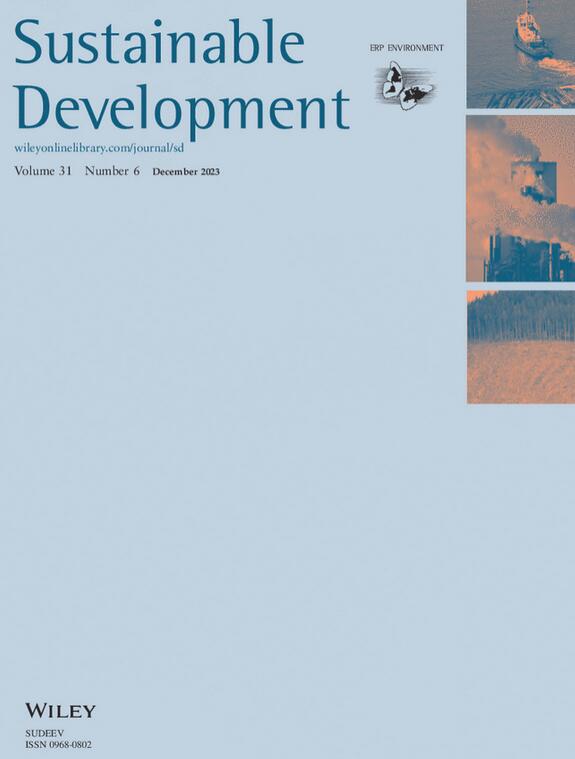Monitoring SDG 4.7: Assessing Education for Sustainable Development in policies, curricula, training of educators and student assessment (input‐indicator)
IF 8.2
1区 环境科学与生态学
Q1 DEVELOPMENT STUDIES
引用次数: 0
Abstract
Education is viewed as a critical keystone in achieving the Sustainable Development Goals (SDGs). Specifically, Education for Sustainable Development (ESD) is meant to enable everyone to contribute to sustainable development (SDG 4.7). This target is monitored using the global indicator 4.7.1 – mainstreaming of ESD in policies, curricula, training of educators and student assessment. Here, we offer a conceptual and methodological framework for assessments of SDG 4.7.1 (input‐level) that addresses both quality and depth of implementation and speed of change. The approach combines document analysis with external expert evaluation and is applied to 10‐year data (>11,000 documents) from all formal areas of education in Germany (early childhood education, school education, vocational education and training, higher education). Currently, ESD is mostly implemented in Germany as an “add‐on” to the educational system, with all sub‐indicators ranging from “isolated mentioning” of ESD and related concepts to “partial integration”. Across most areas of education, the sub‐indicator training of educators was evaluated as most deficient. With regard to the speed of change, it was found that the implementation of ESD is dynamic, with all sub‐indicators having been evaluated as increasing. The proposed framework can increase the validity, reliability, and comparability of both country reporting and scientific assessments of SDG 4.7.1. We argue for independent and integrative monitoring across input, process, output and outcome to complement self‐reporting and to support evidence‐informed policymaking on sustainability in education.监测可持续发展目标 4.7:评估政策、课程、教育工作者培训和学生评估中的可持续发 展教育(投入--指标)
教育被视为实现可持续发展目标(SDGs)的重要基石。具体而言,可持续发展教育(ESD)旨在使每个人都能为可持续发展做出贡献(SDG 4.7)。这一目标通过全球指标 4.7.1 进行监测--将可持续发展教育纳入政策、课程、教育工作者培训和学生评估的主流。在此,我们为可持续发展目标 4.7.1(投入层面)的评估提供了一个概念和方法框架,该框架既涉及实施的质量和深度,也涉及变革的速度。该方法将文件分析与外部专家评估相结合,并应用于德国所有正规教育领域(幼儿教育、学校教育、职业教育与培训、高等教育)的 10 年数据(超过 11,000 份文件)。目前,可持续发展教育在德国大多是作为教育系统的 "附加部分 "来实施的,所有子指标的范围从 "单独提及 "可持续发展教育和相关概念到 "部分融入 "不等。在大多数教育领域,教育者培训这⼀分指标被认为是最不充分的。关于变化的速度,研究发现,可持续发展教育的实施是动态的,所有次级指标都被评为 在增加。建议的框架可以提高可持续发展目标 4.7.1 的国家报告和科学评估的有效性、可靠性和可比性。我们主张对投入、过程、产出和结果进行独立和综合监测,以补充自我报告,并支持以证据为依据的教育可持续发展决策。
本文章由计算机程序翻译,如有差异,请以英文原文为准。
求助全文
约1分钟内获得全文
求助全文
来源期刊

Sustainable Development
Multiple-
CiteScore
17.30
自引率
11.20%
发文量
168
期刊介绍:
Sustainable Development is a publication that takes an interdisciplinary approach to explore and propose strategies for achieving sustainable development. Our aim is to discuss and address the challenges associated with sustainable development and the Sustainable Development Goals. All submissions are subjected to a thorough review process to ensure that our readers receive valuable and original content of the highest caliber.
 求助内容:
求助内容: 应助结果提醒方式:
应助结果提醒方式:


